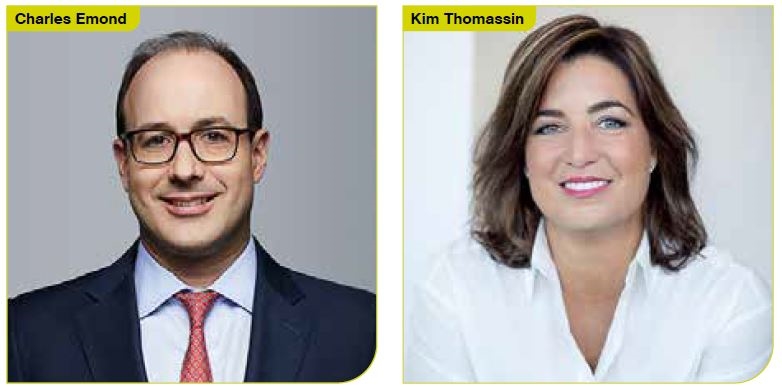IJGlobal ESG Award, Governance – CDPQ
Action taken by CDPQ during the judging period to analyse transactions and ensure they meet rigorous criteria win it the IJGlobal ESG Award for Governance.
The judges were particularly impressed by CDPQ’s “emphasis on countering abusive tax structuring” and its “impressive approach to governance and behavioural risk” while saluting it for “showing leadership in governance” on a number of “very interesting initiatives”.
One of the judges singled CDPQ out for praise for its “comprehensive strategy which is embedded in many lines of business/scopes of activities ranging from setting ambitious targets regarding its own operations and investments, industry advocacy for improved ESG disclosure and strong statements on divestments – for example, tobacco”.
Another adds: “CDPQ’s highly structured and extensive governance initiatives stood out compared to the competition. In particular, I was impressed by their efforts to counter abusive tax planning – an important topic that ordinarily does not get the attention it deserves from investors.”
Yet another judge provides the ultimate accolade saying: “CDPQ has placed ESG at the heart of its governance and ensures that all potential ESG risks have been fully examined before investing.”
The praise is rounded off by one judge saying: “Good efforts from the Canadians including CDPQ, just noting the Canadian pension plans still lack in diversity, and not only talking about gender diversity, but overall diversity of thought as well.”
This accolade has been happily received by CDPQ, though they were sadly unable to attend the awards night.
Charles Emond, president and chief executive of CDPQ, said: “The pandemic highlighted the importance of strong governance. As a leading global investment group, this award is a testament to our constructive capital approach, driven both by a sustained dialogue on critical ESG matters and targeted efforts to pursue best-in-class practices across the companies that we invest in. And we do this to create stronger businesses and communities and lasting value for our clients.”
Kim Thomassin, executive vice-president and head of investments in Québec and stewardship investing at CDPQ, added: “We are thrilled to be the recipients of the first IJGlobal ESG Award for Governance – an important subject and integral part of our ‘stewardship investing’ approach at CDPQ – and we extend our congratulations to all fellow award winners.
“By engaging proactively with our portfolio companies to develop their expertise across all ESG factors, including cybersecurity and abusive tax planning topics, we play an important leadership role that is underpinned by the belief that sound governance is a critical factor in generating value over the long term.”
Submission
The CDPQ submission states: “Our belief is that sound corporate governance is a reflection of the solidity and durability of our portfolio companies. Transparency and resilience are fundamental for companies we invest in. Therefore, in 2020, our teams reviewed a set of factors when analyzing our transactions.”
CDPQ carried this corporate governance policy across a range of factors when analysing transactions that range from board composition and effectiveness through to shareholding structure, executive compensation, tax practices, ethics and business practices, as well as risk management and cybersecurity.
In 2020, CDPQ conducted more than 355 ESG analyses, a key element in its investment strategy performing detailed reviews to map potential ESG risks it may be exposed to as an investor.

CDPQ is hot on the cybersecurity front, paying close attention to efforts made by companies to address issues and assesses a company's resilience to this threat.
“Given that this could have a significant impact on business activities, we make this a priority issue in our discussions,” according to the CDPQ submission. “In 2020, a number of cybersecurity risk analyses were conducted by our teams at all stages of the investment cycle, taking into account the following factors: governance, resources available, processes in place and cybersecurity technology.”
However it was countering abusive tax planning that caught the attention of a good number of judges.
“In 2020, we took various actions regarding international taxation. Our investment process was refined to clarify the criteria used in assessing shares of public companies. These criteria have been incorporated into the investment process. As a result, investments must be subject to a consolidated tax rate of at least 15%, no matter where the investment is made.”
Request a Demo
Interested in IJGlobal? Request a demo to discuss a trial with a member of our team. Talk to the team to explore the value of our asset and transaction databases, our market-leading news, league tables and much more.